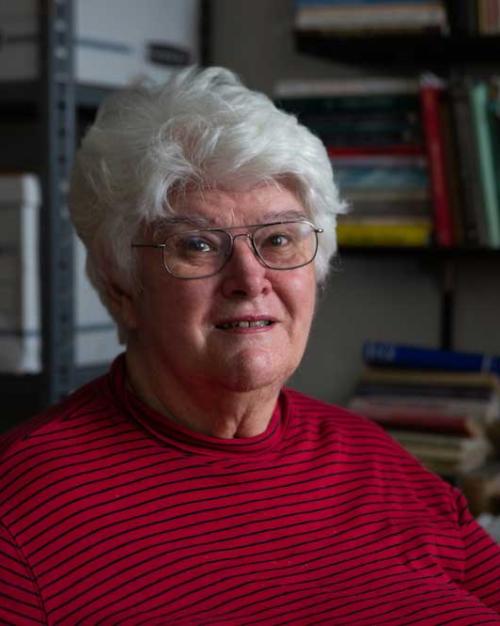Margaret Rossiter, the Marie Underhill Noll Emerita Professor of the History of Science, has been awarded the 2022 Sarton Medal from the History of Science Society (HSS).
“This is the highest award the society grants. It honors a lifetime of scholarly achievement,” said Suman Seth, the Marie Underhill Noll Professor of History of Science and chair of Science and Technology Studies.
Rossiter will be honored during the HSS annual meeting in November, to be held in Chicago.
A founding member of Cornell’s Department of Science and Technology Studies, Rossiter dedicated her research career to analyzing the systematic discouragement women face in scientific fields. Her major work, “Women Scientists in America,” published in three volumes between 1982 and 2012, has redrawn the historical landscape of women in science, said Jessica Ratcliff, assistant professor of Science and Technology Studies.
“Professor Rossiter’s great contribution has been to make visible what we now would term the structural inequalities under which women in science have labored, or through which they have been excluded from participation,” Ratcliff said. “Archive by archive, case by case, individual by individual, year by year, Professor Rossiter’s painstaking research has written women back into the history of science in America.”
In “Women Scientists in America: Struggles and Strategies to 1940,” Rossiter wrote, “Women’s historically subordinate ‘place’ in science (and thus their invisibility to even experienced historians of science) was not a coincidence and was not due to any lack of merit on their part.”
Indeed, finding a publisher for this first volume of the history was a struggle: "There were battles," Rossiter said. But when Johns Hopkins University Press published the book in 1982, it was well received, with positive reviews in the New York Times, Nature, and Science.
The second volume, "Women Scientists in America: Before Affirmative Action, 1940-1972," was published in 1995. The third volume, "Women Scientists in America: Forging a New World Since 1992," came out in 2012.
Among other accomplishments, Rossiter is known for introducing, in a 1993 paper, the term “the Matilda effect," describing the systematic suppression of information about women in the history of science and attribution of women’s work in science to male colleagues.
Rossiter is the recipient of a Guggenheim Fellowship, a MacArthur Fellowship, and multiple grants from the National Science Foundation. She received the History of Women in Science Prize and the Pfizer Prize for “Women Scientists in America.”
“She deserves the Sarton Medal not only for the undeniably monumental scholarly contribution she has made to the history of science, but also for the nature of that contribution, for her unwavering focus on aiming to do history of science ‘better,’” Ratcliff said.
The Rossiter History of Women in Science Prize, given by the HSS annually for an outstanding book or article about the history of women in science is named after her. Said HSS president Fa- ti Fan, “Professor Rossiter and her pathbreaking work need no introduction.”
In the Department of Science and Technology Studies, the Margaret W. Rossiter Women in Science award is given to a rising senior for an essay on any issue looking at women in science.




